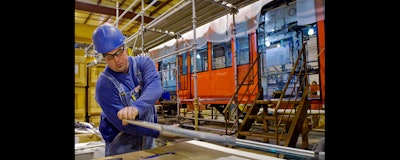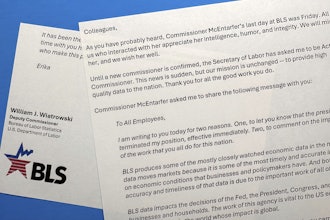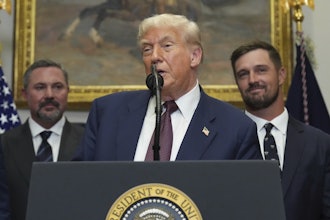
WASHINGTON — Manufacturing Skill Standards Council (MSSC) positively reacts to President Trump's State of the Union message, where he called upon the nation to "invest in workforce development" and "open great vocational schools." In making this proposal, the President reinforced his recognition that robust national leadership is needed to upskill the American workforce. He also demonstrated the boldness of this commitment in his June 15 call for "new apprenticeships for millions of our citizens."
Most importantly, his tax bill has given industry the resources and incentives to greatly increase their share of the public-private resources critically needed to fund high-quality vocational schools nationwide. Corporations now have additional funds to build a robust pipeline of a higher skilled workforce able to keep pace with technological change.
Corporations will take full advantage of the remarkable provisions in the tax bill that now enable them to immediately deduct their purchases of equipment and software. These companies are the first to recognize that they require a higher skilled workforce to keep pace with technological change and secure an optimal return on these costly investments.
Corporations are already beginning to respond to the opportunities offered by the tax code to increase their investment in workforce skills development. On Dec. 20, the CEO of Boeing announced a new $100 million investment in this area, and Lockheed Martin's CEO announced a boost in workforce training on Jan. 29.
Apple CEO's plan, cited by the President, to invest $350 billion in U.S. manufacturing and bring home 20,000 new jobs will include a forward-looking workforce training component. In connection with the first plant, to be operated by Apple contractor Foxconn in Wisconsin, the highly capable Gateway Technical College in Kenosha is chairing a "Smart Factory" training consortium with other area schools based on an "Industry 4.0" certification, which testifies to its innovative nature. Gateway's "Industry 4.0" curriculum will position the regional workforce for global competitiveness and support a manufacturing ecosystem built around data driven production systems.
The President's goal for apprenticeships can only be achieved through a much larger private sector investment. In the much-admired Swiss apprenticeship model, companies pay 45 percent of the costs for vocational training.
"Nowhere in the economy are the President's policies and leadership more vitally needed than in the manufacturing sector," said Leo Reddy, Manufacturing Skill Standards Council (MSSC) Chair and CEO. "For years, the Manufacturing Institute of the National Association of Manufacturers (NAM) and Deloitte have been documenting a deepening skills gap in manufacturing, especially among production workers. Their current projection is that manufacturers need to fill over 3 million jobs in the next 10 years but anticipate a shortage of 2 million with the right skills.
This skills gap remains a major barrier to the President's goals of creating a manufacturing renaissance and attracting foreign direct investment in new plants in America.
Fortunately, the manufacturing sector, ably led by NAM, and supported by various technical education organizations, has developed the building blocks needed to close the manufacturing skills gap. Please view the Building Blocks of Nationwide Strategy to Close Manufacturing Skills Gap highlighting the organizations that have developed these building blocks.
"These building blocks are immediately available, but are fragmented and underfunded," Reddy added. "To close the manufacturing skills gap, they need to be integrated into a nationwide strategy and cohesive community — supported by national leadership and sufficient private and public resources. President Trump's policies define that strategy."






















